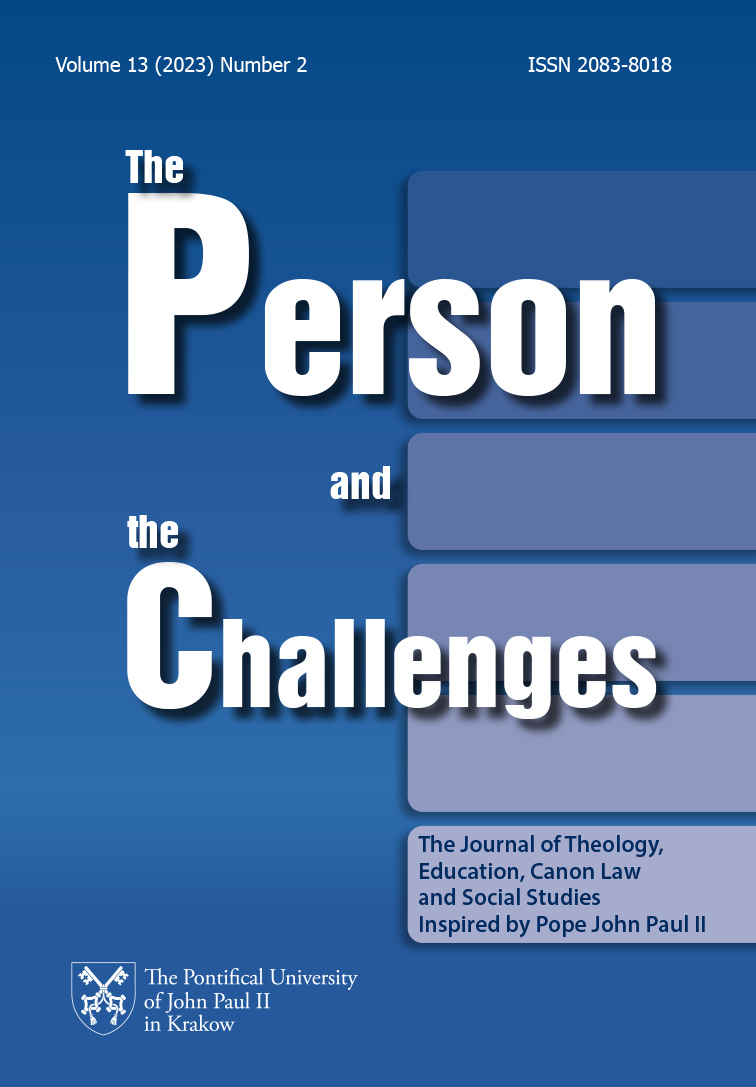The Instituted Ministries of Readers and Acolytes: A Kairos for the Synodality of the Liturgy
DOI:
https://doi.org/10.15633/pch.13213Keywords:
ministries, institutions, readers, acolytes, catechists, men and women, synodality, Word of God, Body of ChristAbstract
Among the proposals for the implementation of the motu proprio Spiritus Domini and Antiquum Ministerium of Pope Francis (2021), opening the instituted ministries also to women and to lay people not on the way to ordination, the Note of the Italian Bishops’ Conference of June 2022, is certainly one of the most relevant with respect to the discernment, formation and conditions of access of candidates. By receiving a sacramental from the bishop in a community liturgy, for a perennial ministry at the service of the Word of God, the care of the body of Christ in the Eucharist and in the sick, as well as for Christian initiation and small base communities, the instituted ministers can contribute to the synodal revitalization of the ecclesial communion. Decreed ad experimentum for three years, the Italian document can inspire other Bishops’ Conferences around the world.
References
Amherdt F.-X., L’animation biblique de la pastorale. 120 propositions pratiques, coll. « Pédagogie pastorale » (2017), n. 12, Namur, Lumen Vitae.
Benedict XVI, Verbum Domini, Post-Synodal Apostolic Exhortation on the Word of God in the Life and Mission of the Church, Rom 2010.
Congregation for Divine Worship and the Discipline of the Sacraments, Letter from the Prefect of the Congregation, Archbishop Arthur Roche, to the Presidents of the Bishops’ Conferences, on the occasion of the publication of the Editio typica of the Rite of Institution of Catechists, Rom 3 December 2021.
Consiglio permanente della Conferenza episcopale italiana, Nota sui ministeri instituti del lettore, dell’accolito e del catechista, http://www.settimananews.it/ministeri-carismi/ministeri-istituiti-lettore-accolito-catechista/ (16.07.2022).
Francis, Antiquum Ministerium, Apostolic Letter in the Form of a Motu Proprio establishing the Ministry of Catechist, Rom 2021.
Francis, Evangelii Gaudium, Apostolic Exhortation on the Proclamation of the Gospel in Today’s World, Rom 2013.
Francis, Letter to the Prefect of the Congregation for the Doctrine of the Faith on the Access of Women to the Ministries of the Lectorate and Acolyte (Cardinal Luis F. Ladaria), Rom 10 January 2021.
Francis, Querida Amazonia, Post-Synodal Apostolic Exhortation, Rom 2020.
Francis, Spiritus Domini, Apostolic Letter in the Form of a Motu Proprio on the Modification of Canon 230 § 1 of the Code of Canon Law Concerning the Access of Women to the Instituted Ministry of the Lectorate and Acolyte, Rom 10 January 2021.
John Paul II, Christifideles Laici, Post-Synodal Apostolic Exhortation on the Vocation and Mission of the Laity in the Church and in the World, Rom 1988.
Paul VI, Ministeria Quaedam, Apostolic Letter in the Form of a Motu Proprio reforming the Discipline of Tonsure, Minor Orders and the Subdiaconate in the Latin Church, “La Documentation catholique” 69 (1972), pp. 852–854.
Vatican II, Apostolicam Actuositatem, Decree on the Apostolate of the Laity, Rom 1965.
Vatican II, Lumen Gentium, Dogmatic Constitution on the Church, Rom 1964.
Downloads
Published
Issue
Section
License

This work is licensed under a Creative Commons Attribution 4.0 International License.
Authors who publish with this journal agree to the following terms:
- Authors retain the copyright and full publishing rights without restrictions, and grant the journal right of first publication with the work simultaneously licensed under a Creative Commons Attribution 4.0 International License that allows others to share the work with an acknowledgement of the work's authorship and initial publication in this journal.
- Authors are able to enter into separate, additional contractual arrangements for the non-exclusive distribution of the journal's published version of the work (e.g., post it to an institutional repository or publish it in a book), with an acknowledgement of its initial publication in this journal.
- Authors are permitted and encouraged to post their work online (e.g., in institutional repositories or on their website) prior to and during the submission process, as it can lead to productive exchanges, as well as earlier and greater citation of published work (See The Effect of Open Access).

